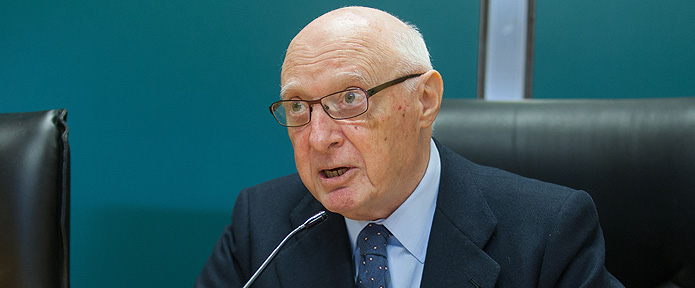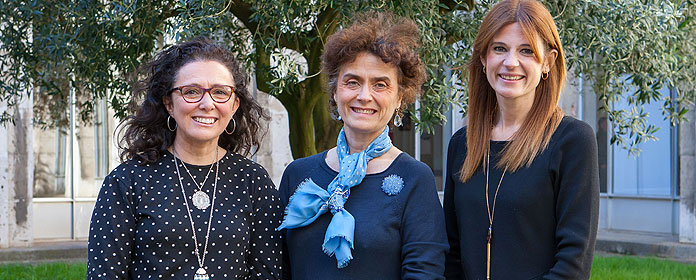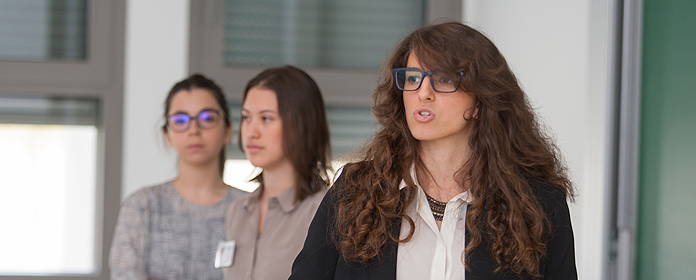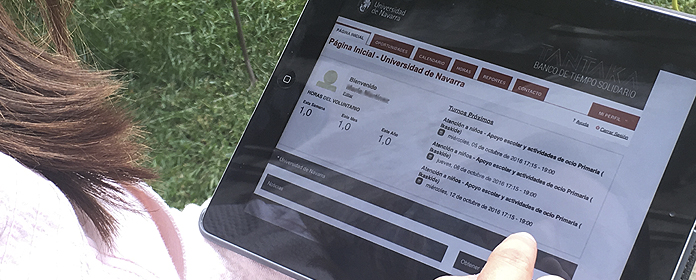"When we opened the bottle of the Constitution a very well-made aroma came out. Now it looks like we have a sour wine."
José Pedro Pérez-Llorca, speaker constitutional and former Minister of the Presidency, spoke about the Transition at the University.

"When we opened the bottle of the Constitution in 1978, the aroma of a very well-made wine came out. However, now it seems that we have a sour wine", said José Pedro Pérez-Llorca at the University of Navarra. The constitutionalist was invited last Monday by the group of research in Recent History (GIHRE) to offer the seminar 'The Transition, forty years later'.
The speaker reviewed the history of democracy in Spain, where for him the "real dramatis personae" were King Juan Carlos and the first president of UCD: "The monarchy has a legitimate evocative capacity, which should be recognized. Adolfo Suaréz promised that Spaniards would choose the next politicians and he put it into action".
Pérez-Llorca also highlighted the significance of the Moncloa Pacts: "What was transmitted to the country and beyond our borders is that tensions were excluded from the constituent process". Regarding the latter, he explained that it was entrusted to only seven people to avoid other formulas that had previously failed.
He recalled his experience as part of that group: "During the first meeting, in August 1977, we realized that it would be easy to reach a agreement on the index of issues to be dealt with". As he explained, the fact that most of them were law graduates from Schools in Madrid and Barcelona favored understanding. "I was the youngest," he added.
In this way, said the speaker, they achieved a Constitution that "for the first time guaranteed a system of freedoms in Spain". Persecutions and exiles ceased, there was religious freedom and the question of autonomies was resolved, at least temporarily.
However, now the panorama is quite different: "Our system is showing a certain fatigue of the materials. The tools are used; and the politicians, seen," he explained. For Pérez-Llorca, the economic crisis and the corruption cases have also contributed to break the social consensus. Also on the autonomies: "In a certain way, it can be said that the Constitution wanted to channel a phenomenon that had a lot of strength and has failed. We find ourselves again as at the beginning, with nationalisms that want everything", he concluded.
José Pedro Pérez-Llorca is one of the seven fathers of the Spanish Constitution of 1978. He belonged to the Union of the Democratic Center (UCD) and served as Minister of the Presidency, Territorial Administration and Foreign Affairs. According to Pablo Pérez, professor of History at the University of Navarra, agreement , "he is above all a jurist who has managed to get his ideas into the internship".




